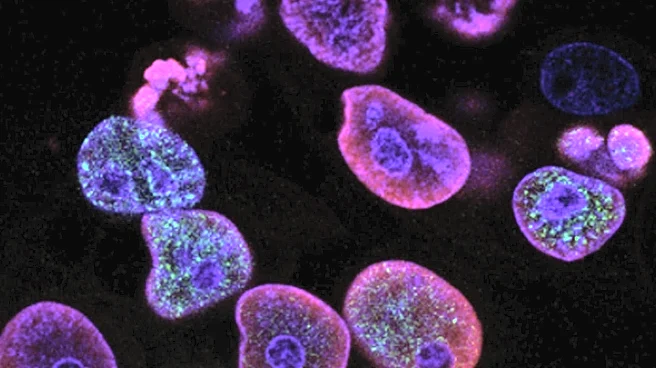What's Happening?
A large-scale next-generation sequencing study has identified SH2B3 mutations in a cohort of 17,833 patients suspected of having myeloid neoplasms or acute leukemia. The SH2B3 gene, encoding the LNK protein, is a negative regulator of hematopoietic progenitor
cell expansion. Variants of SH2B3 were classified into tiers based on mutation type and frequency, with Tier I and II variants deemed likely pathogenic. These variants were found in 246 individuals, showing enrichment in chronic myelomonocytic leukemia and myeloproliferative neoplasms. The study highlights the complexity of SH2B3 mutations and their role in hematologic diseases.
Why It's Important?
The identification of SH2B3 mutations provides insights into the genetic underpinnings of hematologic malignancies, potentially guiding diagnostic and therapeutic strategies. Understanding the role of SH2B3 in disease progression could lead to targeted treatments and improved patient outcomes. The study also raises questions about the clonal hierarchy and functional impact of these mutations, which are crucial for developing personalized medicine approaches in oncology.
What's Next?
Further research is needed to explore the functional implications of SH2B3 mutations and their interaction with other genetic alterations. This could involve studies on the clonal architecture of hematologic malignancies and the development of targeted therapies. The findings may also prompt revisions in diagnostic criteria and treatment protocols for diseases associated with SH2B3 mutations.
Beyond the Headlines
The study highlights the importance of genetic screening in understanding complex diseases and the potential for personalized medicine. Ethical considerations regarding genetic testing and its implications for patient care and privacy may also arise, influencing future research and policy decisions.
















